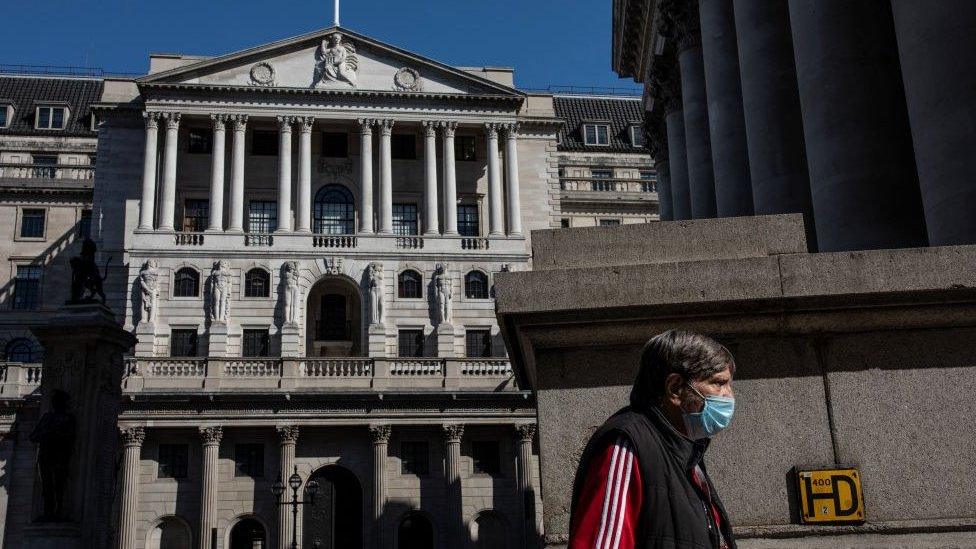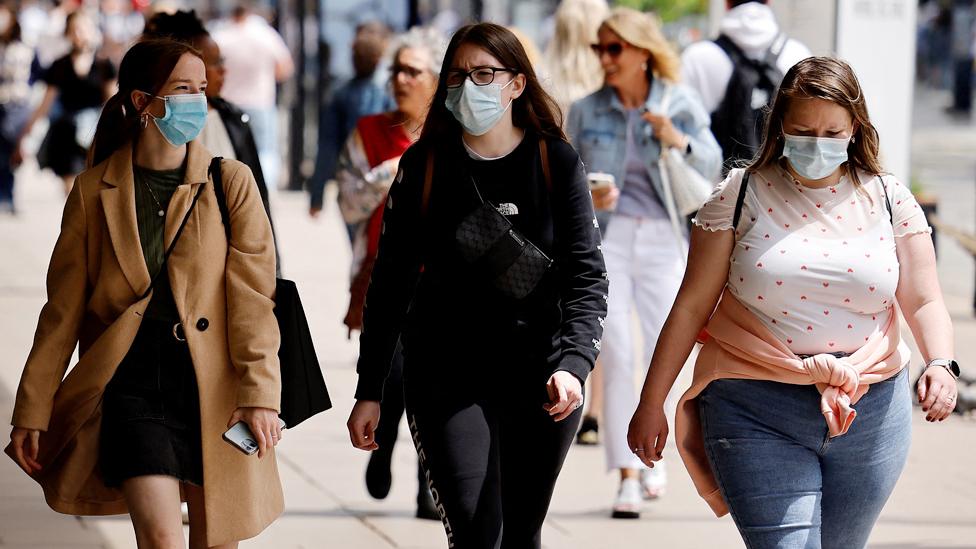Banks must support households as furlough unwinds, says report
- Published
- comments

The Bank of England has scrapped curbs on banks paying dividends to shareholders
UK banks will play a key role in supporting firms and households as government Covid support unwinds, according to a Bank of England report.
In its latest update on the health of Britain's financial system, the Bank of England says banks are emerging from the pandemic "resilient".
But while the economic outlook has improved, risks remain, especially from the spread of Covid, the report says.
Households and firms will continue to need loan support from banks, it adds.
The Financial Stability Report, external, published twice a year to provide a snapshot of the financial system and assess risks, says banks are in a good position to provide that support.
This will be especially important as government support schemes are unwound, with furlough ending in September and emergency business loans becoming due.
The Bank's Financial Policy Committee (FPC), which monitors risks to financial stability, cautioned over debts built up in the pandemic. Corporate "debt vulnerabilities" have increased modestly, but more substantially among smaller firms.
The report showed that debt levels of small businesses have soared by about 25% since the end of 2019 as firms have tapped government emergency loans.
This could lead to rising company failures as support schemes end and loans become due, the Bank warned.
Bank of England governor Andrew Bailey said the rapid rollout of the UK's vaccination programme had led to an improvement in the economic outlook in recent months.
"But risks to the recovery remain. Households and businesses are likely to need continuing support from the financial system as the economy recovers and the government's support measures unwind over the coming months," he said.
The Bank's report cautioned that in hard-hit sectors such as hospitality, 11.8% of small firms were already behind on their loan repayments or have formally defaulted as of January.
"Households and businesses are likely to need continuing support from the financial system as the economy recovers and the government's support measures unwind over the coming months," the Bank said.
"The FPC continues to judge that the banking sector remains resilient to outcomes for the economy that are much more severe than the Monetary Policy Committee's central forecast."
The Bank also announced that, given the health of the system, it was removing pandemic-era curbs on dividends from HSBC, Barclays and other top lenders with immediate effect on Tuesday. The report said its stress test showed the sector was well capitalised to cope with a return to dividend payments.


The Bank of England said the banking sector was equipped to carry on supporting businesses and households through the recovery, even if there was a further economic shock.
The Bank's interim results of its "stress test" of the UK banking sector concluded there were enough funds to withstand heavy losses of £90bn, even after the impact of a sharp pandemic recession. Banks have already made provisions for £20bn of losses.
The Bank said in general there had been slight increases in levels of debt in companies and households. Small businesses in particular have seen indebtedness rise by 25% during 2020, compared with 2% for larger firms.
Those sectors most affected by lockdown are the most exposed - 11.8% of small and medium enterprises in accommodation and food are in arrears or default on loans, and 8% of transport companies.
The Bank said that there had been a slight increase in debt levels for households, but 80% of those who had taken out mortgage deferrals have now returned to full repayments.

Related topics
- Published9 July 2021

- Published6 July 2021
